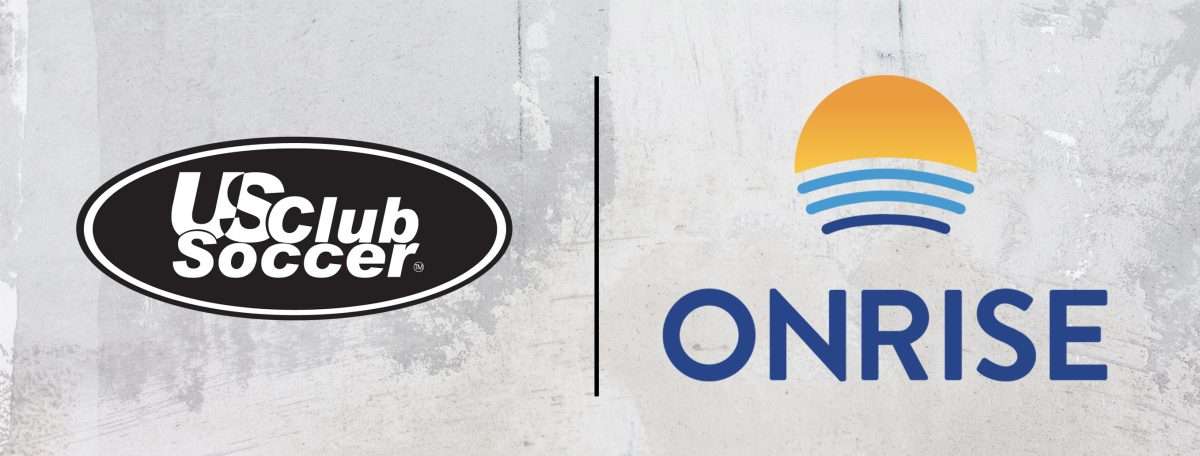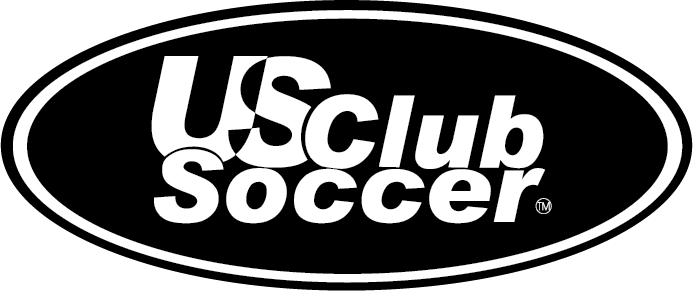The mind-body connection for athletes (via Onrise)
Editor’s Note (May 1, 2024): This article was submitted by Onrise, which US Club Soccer has partnered with for ongoing educational resources related to mental health, as part of a Mental Health Awareness Month series. The series will cover the mind-body connection, embracing pressures and overcoming obstacles, mental health awareness and destigmatization in sports, and self-care and long-term satisfaction in sports. The author, Tasha Saunders, is the VP of Player Care at Onrise. Tasha has a Player Care Certification and has completed training in Mental Health First Aid training for Adults and Youth. She grew up playing competitive soccer and continued her career at Sewanee as a four-year starter.
The mind-body connection; what is it? The mind-body connection is a reference to the intricate relationship between the mental processes (thoughts and emotions) and the physical body (sensations and behaviors). When we think about our behaviors, it is important to note that not only is our mind contributing to the outcome, but our body is too. The easiest example for the mind-body connection is mindfulness. Some examples of practicing mindfulness are meditation, journaling or mindful walking. When we utilize these mindfulness tools, our stress and anxiety levels decrease.
While mindfulness is a great way to work on the mind-body connection, there are many more examples. Our brain and nervous system mediate our mental and physical processes. Also, our hormones and neurotransmitters have a huge influence on our mental and physical health, too.
Don’t forget placebos! A placebo effect is when someone perceives improvement in symptoms, believing that a treatment is effective, even if it’s scientifically not. Why does this work? The mind-body connection. Your mentality about your physical health can have a powerful influence on your improvement.
Now that we know how important the mind-body connection is, let’s jump into some ways you can improve the connection.
Stress management: When we are stressed, our performance can be negatively impacted. Showing up to the field with tense muscles or bringing the stress from your day to the game can negatively impact your performance. Additionally, deep feelings of sadness can impact your ability to focus while playing. To combat this, try strategies to compartmentalize these feelings. Compartmentalizing does not mean that you never deal with these feelings or push them aside. In order to compartmentalize certain feelings in a healthy manner, find the right time and place to address these feelings. If the soccer field is your happy place, then try to address these feelings when you’re in the car on the way to the game or afterwards at home. Note that if you push these feelings aside and never address them, then they will pop up when you don’t want them to. Utilizing relaxation techniques such as meditation, deep breathing and mindfulness promotes a state of calmness. When our mind is calm, our bodies can perform at its best.
Injury recovery and physical therapy: When overcoming an injury, it’s important to think about the power of positive thinking. When an injury occurs and we get stuck in a rut of negative thinking, it impacts our return-to-play progress. Having negative thought patterns about the strengthening exercises or not being able to play will not help you get back on the field. Not only does this affect the mind-body connection, your negative thought patterns will not have a positive effect on the team or the coaches’ perception of you. In order to combat this, try catching yourself in a negative thought pattern. When you realize you are having negative thoughts, pause and try to ground yourself in a grateful thought. Also, seek support from coaches, teammates, friends and family members. They will continue to provide emotional support and encouragement, which will reduce feelings of isolation or not belonging. Additionally, many athletic trainers are happy to listen to frustrations you may have and support you during this time. Another strategy is to seek a mentor. Find someone who has been through a similar injury and ask them for advice and support. You would be surprised at the number of athletes who would love to help a current athlete going through an injury that they have also been through. Nurturing the mind-body connection helps to optimize your recovery and minimize psychological impact of injuries on your overall recovery.
Mind-gut (body) connection: Has there ever been a time when you’ve felt a little anxious and your stomach hurts, as well? That’s the mind-gut connection! The Enteric Nervous System is often referred to as the “second brain.” Essentially the ENS is a network of neurons that line your digestive tract. The ENS also communicates with your brain. These neurotransmitters in your gut produce hormones that influence your mood. Serotonin, one of the hormones that helps regulate feelings of happiness, and emotional well-being are affected by your gut. When your body reacts negatively to a certain food, listen to it. Not only can it affect your body, but it has an impact on your brain, as well. Especially before a big game, you don’t want to have a bad feeling in your gut because of something you ate. Listen to your body and your mind will thank you.
Through these three examples, it is imperative to consider both your mental and physical health. The mind-body connection can positively impact your holistic improvement to your well-being. Considering the mind-body connection is integral to injury recovery, stress management and feelings of anxiety from your gut health.
Try these three strategies to work towards better overall well-being, and ultimately improving your relationship with yourself and your sport.
ABOUT US CLUB SOCCER
A National Association member of the U.S. Soccer Federation, US Club Soccer fosters the growth and development of soccer clubs in order to create the best possible environment for players of all ages.
Anchored by Players First and its pillars of Club Development, Coaching Development, Player Development, Referee Development, Parent Engagement and Player Health & Safety, US Club Soccer offers registration, league- and cup-based competition platforms, player identification and a variety of other programming, resources and services.
US Club Soccer is sponsored by Nike, DICK'S Sporting Goods and Gatorade.
usclubsoccer.org | App | Instagram | Facebook | X | YouTube |



